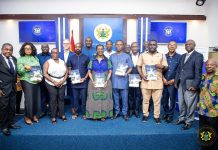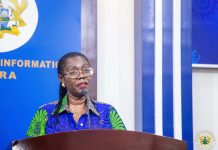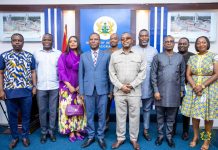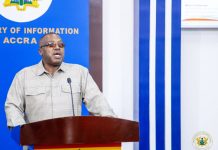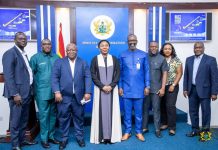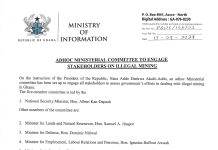Good morning,
Distinguished guests,
As we convene here today to delve into the pressing issue of “The Impact of False Information on Elections and Peace in Africa,” it is evident that the time for action has come.
Allow me to draw from a recent event that occurred earlier this year, shedding light on the gravity of our current discussion. The Media Foundation for West Africa and its partners organized a forum where participants identified three critical drivers of the problem we face: political party propaganda, legacy media’s compromise on news accuracy for the sake of speed, and the regulatory challenges encountered by the Ghanaian government.
In response to these challenges, it is clear that we must take collective action to address these fundamental issues. The recommendations arising from the MFWA forum closely align with our objectives today. We must collaborate to tackle the influence of political party propaganda, ensure that legacy media maintains the accuracy of information in the digital age, and support the Ghanaian government in surmounting its regulatory hurdles.
As the Minister for Information, I am determined to work alongside my colleagues present here and beyond to comprehend the impact of false information on elections and find practical and effective solutions in which we can take pride.
Perhaps the BBC Global Disinformation Team put it aptly in its reporting on the Nigerian elections. “Several websites established around the time of Nigeria’s general elections in February 2023 are reaching thousands of people while spreading false news, the BBC has found. A high number of adverts on the websites mean they can be profiting from the spread of disinformation.”
Al Jazeera put it differently, “Nigeria election triggers a deluge of ‘fake news’ on social media. Experts and activists say political actors have expanded the scope of misinformation ahead of the 2023 general elections in Nigeria.”
Instead of diligently reporting the facts, observers are now racing against the clock to sift through “THE NEWS,” hoping to fact-check and place a seal with “FAKE” on that which has been mischievously created to tarnish individuals and institutions.
It’s time to act!
One prominent example of the impact of fake news in American politics is the “Pizzagate” conspiracy theory. This baseless theory emerged during the 2016 United States presidential election and alleged that a child sex trafficking ring was being operated out of a Washington, D.C. pizzeria, Comet Ping Pong. The conspiracy theory claimed that high-profile political figures, including Hillary Clinton and her campaign chairman John Podesta, were involved.
Despite having no factual basis, this fake news story gained significant traction on social media platforms and internet forums. It was widely circulated and discussed, even leading to a real-world incident. In December 2016, a man walked into Comet Ping Pong with a firearm, demanding to “investigate” the conspiracy himself. Fortunately, no one was harmed, but the incident highlighted the real-world consequences of false information.
The “Pizzagate” conspiracy theory demonstrated how fake news can not only influence public opinion but also lead to potentially dangerous actions by individuals who believe in and act upon these falsehoods. It underscored the importance of critical thinking and responsible journalism in the era of digital information dissemination.
As we work towards a solution-focused framework, we must hold big tech and app makers accountable for the accuracy or otherwise of information shared on their platforms.
These entities wield significant influence in the dissemination of information, and it is only fair that they share the responsibility of combating false information and disinformation.
Today, as we delve into the multifaceted impacts of false information on our democratic processes and peace, let us keep these practical examples in mind. The challenges are real, but the solutions are within our reach through collective effort. We must unite to safeguard the principles of democracy, ensure the integrity of our electoral processes, and protect the peace we cherish in Ghana and across Africa.
Thank you for embarking on this journey with us.
Top of Form

